Warren A. Gage Biblical Theology Collection (13 vols.)
Digital Logos Edition
Overview
Professor and pastor Warren A. Gage is passionate about teaching and training students to preach and teach biblical theology. This 13-volume collection expresses that passion, examining such theological topics as the relationship between eschatology and protology, providing insight on resurrection theology, and presenting new methods for biblical interpretation and inductive Bible study. Gage’s volumes also explore Revelation’s intertextual connections with the gospel of John, the book of Joshua, and other biblical accounts that have been neglected by modern scholarship.

- Proposes a new approach to biblical theology based upon rhetorical and literary analysis
- Teaches the student to interpret the Scriptures with an awareness of form and a sense of symbol
- Explores the Hebrew Bible to see why the “third day” was to be the eschatological day of Christ’s triumph
- Demonstrates that the Old Testament clearly and pervasively taught the resurrection of Christ
- Develops a theology of Biblical typology.
- Teaches an enhanced inductive Bible study method using the Joseph narrative of Genesis 37–50
- Shows how to read the Hebrew Bible to see Jesus
- Examines the intertextual relationship between the books of Joshua and Revelation
- Analyzes the typology of Holy war and explains the prominence of Rahab in the New Testament
- Title: Warren A. Gage Biblical Theology Collection
- Volumes: 13
- Pages: 1,652
- Christian Group: Evangelicals
- Resource Type: Biblical Theologies
- Topic: Biblical Theology
- Theological Poetics: Typology, Symbol, and the Christ by Warren A. Gage
- Essays in Biblical Theology by Warren A. Gage
- The Heavenly Banquet by Warren A. Gage
- Milestones to Emmaus: The Third Day Resurrection in Scripture by Warren A. Gage
- Return from Emmaus: The Resurrection Theme in Scripture by Warren A. Gage
- The Gospel of Genesis: Studies in Protology and Eschatology by Warren A. Gage
- John’s Gospel: A Neglected Key to Revelation? by Warren A. Gage
- The Story of Joseph and Judah by Warren A. Gage and Christopher Barber
- The Story of Joseph and Judah: A Teacher’s Narrative and Structural Commentary on Genesis 37–50 by Warren A. Gage and Steven P. Carpenter
- The Road to Emmaus: A Walk with a Stranger from Jerusalem by Warren A. Gage and Leah Grace Gage
- Gospel Typology in Joshua and Revelation: A Whore and Her Scarlet, Seven Trumpets Sound, A Great City Falls by Warren A. Gage
- There Is No Greater Love: How Jesus Is Greater Than All Who Came before Him by Warren A. Gage
- The Romance of Redemption: Biblical Types of the Bride of Christ by Warren A. Gage
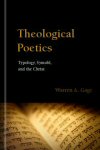
According to the apostles, Christ fills and fulfills all things. Theological Poetics explores the biblical theology of the “pleroma” doctrine of the fullness of Christ. The approach of traditional biblical theologies has generally been historical in nature. This new approach focuses on the person and work of Christ, and demonstrates that all things in nature and Scripture—God and man, life and death, time and space, male and female, and more—find their fullness in him.
‘All theology is poetry,’ writes Warren Gage. Theologians will be more than surprised to hear it, because for many theology is not poetry but scientific exegesis and system-building. Gage vigorously challenges the Protestant prejudice against poetry, and shows convincingly why ‘theological poetics’ is the ‘precondition to biblical theology.’ Fortunately, Gage is more interested in practice than theory, and he demonstrates in detail what it looks like when a convinced evangelical reads the Bible as typology and symbol. The result is an intellectually invigorating, spiritually refreshing, thoroughly Christ-centered introduction to biblical theology that should be read by everyone who longs to know and love the Great Poet who is the object of all theology.
—Peter J. Leithart, senior fellow of theology and literature, New Saint Andrews College
For years, Warren Gage has refined a style of theological exegesis that is as deep as it is luminous. He skillfully combines keen literary analysis and spiritual discernment, along with a thorough understanding of God’s inspired Word and the great Christian tradition. Building on the interpretive approach and best insights of the early church fathers, Dr. Gage uses typology to lead his readers into the heart of sacred Scripture. What a great gift his works are for our time!
—Scott W. Hahn, professor of theology and Scripture, Franciscan University of Steubenville
Dr. Warren A. Gage takes his readers by the heart to lead them into the wonderful world of typological exegesis. This particular field of theological study makes many demands upon the expositor, including: 1) a firm embrace of orthodox theology, 2) a comprehensive grasp of Scripture in both its broad strokes and in its fine verbal details of its original languages, 3) a lively imagination to see similarities in difference and verbal concordance, 4) and a prayerful, meditative spirit upon the Scripture. I know of no expositor that excels Professor Gage in these qualities. I thank God for the marvelous gifts he has given to enrich his church through my colleague at Knox Seminary. His books are full of heart-warming reflections about Christ’s sufferings and glory that bind together God’s cosmic program of salvation.
—Bruce K. Waltke, distinguished professor of Old Testament, Knox Theological Seminary, Fort Lauderdale, FL
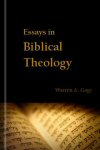
Essays in Biblical Theology explores the method set forth in Theological Poetics as developed through particular biblical characters. Following guidelines for a biblical, responsible method of typological interpretation of Scripture, this book examines the accounts of Moses, Joshua, David, Samson, and other biblical figures, showing how the depth and richness of these redemptive giants prefigure Christ, anticipating both his suffering and glory. Essays in Biblical Theology concludes with a pioneering study of the relationship between the narrative of Elijah typology and Mark’s Gospel—which unexpectedly provides an argument for the originality of the longer ending of Mark.
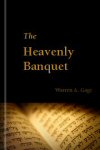
The Heavenly Banquet provides a biblical theology of the New Testament in the form of an imagined dialogue in heaven. It is loosely conceived as a sequel to Bunyan’s Pilgrim’s Progress. In it, Christian enters the Celestial City and has a celebratory supper with the seven principal authors of the New Testament: Matthew, Mark, Luke, John, Paul, Apollos (Hebrews), and Peter. Each of them relates the argument of their individual theologies, focusing on the love of Jesus as they each uniquely understood it.
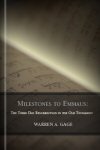
Does the Old Testament clearly teach the resurrection? Every time Jesus speaks of his coming resurrection, he claims that the Scriptures teach that it must happen on “the third day” (Matt. 16:21; Mark 8:31; Luke 9:22; John 2:19). Paul, likewise, teaches that the Scriptures require Christ’s resurrection to be on the third day (1 Cor. 15:4). Milestones to Emmaus explores 40 explicit references to “the third day” or “three days” in the Old Testament. Gage applies the “suffering followed by glory” template that Jesus taught (Luke 24:26) to each reference. Approaching each of these as gospel texts in the Hebrew Bible, Gage “reverse engineers” his way back to an understanding of Jesus’ resurrection hermeneutics.
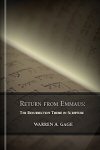
The New Testament figures of speech for resurrection include
- Birth from barrenness
- Awakening from sleep
- Revival from thirst or hunger
- Deliverance through baptismal waters of judgment
- Release from imprisonment
- Return from exile
- Death decree and release
- The raising up of a fallen tabernacle
Return from Emmaus explores these figures of speech in the Old Testament to see how the evangelists and apostles would have identified the gospel of resurrection in numerous Hebrew passages.
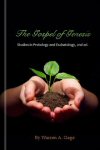
The Gospel of Genesis: Studies in Protology and Eschatology argues that there is an underlying eschatology in Genesis that foresees the sweep of redemptive history and the end of all things as, after the pattern of the beginning, a new creation. Gage examines the structure of, and literary parallels in, the historical records, identifying five major theological themes with a Genesis 1–7 basis. He traces these themes through Scripture, showing that the Bible’s eschatology is intimately bound up with the protology of the early chapters of Genesis. This second edition includes a new introduction.
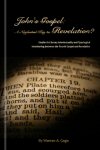
John’s Gospel begins with a war between light and darkness (John 1:5), but this war is not consummated until darkness is vanquished at the end of John’s Revelation (Rev. 21:25). John’s Gospel begins with the claim that the divine Word is tabernacled among us in Jesus (John 1:14) while John’s Revelation ends by claiming that the tabernacle of God will be among men forever (Rev. 21:3). Jesus comes down from heaven as a bridegroom in the Gospel (John 1:14; 3:29), but there is no bride coming down from heaven until the end of Revelation (Rev. 21:2).
John’s Gospel: A Neglected Key to Revelation? explores the literary and thematic patterns—both consecutive and chiastic—that tie the fourth Gospel and Revelation together. When read as a literary diptych, the two books create a pattern of interlocking typologies. Warren Gage suggests that they were composed to interpret each other. An appendix further supports that thesis by demonstrating that the same consecutive, literary and thematic patterns are discernible in the Gospel of Luke and Acts—books generally recognized as penned by the same hand.
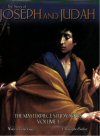
The Story of Joseph and Judah takes one of the most beautiful stories in all of Scripture and walks readers through an enhanced method of inductive Bible study. It shows the value of both scientific analysis and literary sensitivity in Bible study and introduces the student to chiastic structure and typological focus. The volume demonstrates that while the Joseph account is a wonderful story of a good and godly man, it is really an account of Judah’s redemption—the son of Jacob who was to receive the scepter in Israel. It demonstrates how the story is a foretelling of the gospel of Jesus Christ. This volume is designed for individual or group study.
The Story of Joseph and Judah is a fresh and biblically-sound examination of this passage of Scripture. I enjoyed it tremendously and am glad to recommend it. . . . If you are interested in a guide for personal or group Bible study, you likely won’t do much better than this.
—Tim Challies, pastor, Grace Fellowship Church, Toronto, Ontario
. . . this study helps the student of this wonderful account understand the structure of the Joseph narrative and its key themes, and how these apply to today. Undergirding their study is a rich sense of the typological framework of the Scriptures and the intertextual linkages of the Bible that are so key to its understanding.
—Michael A. G. Haykin, professor of church history and biblical spirituality, The Southern Baptist Theological Seminary
As the small groups pastor of our large church, I am always looking for quality, well written and researched materials to use in Bible study groups. I had the privilege of using The Story of Joseph and Judah in one of my men’s groups this winter. . . . The materials were engaging and artfully presented. Our men looked forward to our study time each week and all came away with a clear understanding of the text. The flow of the chapters lent itself to men who are adept at preparing for each meeting as well as those who took a more relaxed attitude.
—Russell Silverglate, pastor, Hammock Street Church, Boca Raton, FL
Christopher Barber is a graduate of Knox Theological Seminary. He currently serves as a lawyer in Fort Lauderdale, Florida.
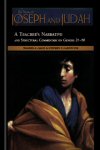
This teaching supplement is designed for preachers and teachers as they unfold the Joseph and Judah narrative to congregations and Bible study groups. This volume supplements and enhances the background to Genesis 37–50. It takes readers on a deeper journey into the closing narrative of Genesis, exploring more thoroughly how each episode of Joseph and Judah’s story is artistically composed and pieced together in a story flow. Besides containing material that will enrich the use of The Story of Joseph and Judah in Bible study settings, it is written in a way that will allow pastors and teachers to use it directly for teaching on this important narrative.
Steven P. Carpenter is a visiting lecturer of biblical theology at Knox Theological Seminary.

How did Jesus spend the afternoon of the day of his resurrection? This fictional account attempts to recreate the conversation Jesus had with Cleopas and his companion on the walk to Emmaus. The dialogue follows the pattern of third-day passages in the Old Testament that describe a release from death. It begins, as Jesus did, with “Moses and all the prophets.” Join us on this walk. See if your heart does not “burn within” you as Christ’s suffering and third day glory are opened in the Old Testament, just as Jesus claimed!
Leah Grace Gage is a graduate student in biblical studies at Harvard. She is a summa cum laude graduate of Dartmouth College.
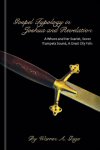
The Church Fathers interpreted Joshua’s battle at Jericho as foretelling the end of the world. Did they understand something about prophecy we’ve forgotten?
A whore and her scarlet, two spies (witnesses) sent into the great city, seven trumpets sound, a great city falls, the people of God rescued. Is Joshua’s battle against Jericho the basis for nothing less than the dramatic narrative of the Book of Revelation?
This new work from author and teacher Warren A. Gage illuminates the connections between the books of Joshua and Revelation and emphasizes the presence of Joshua typology in the life of Jesus. Gage also discusses the typology of holy war in general and the battle at Jericho specifically, the typological prominence of Rahab in the New Testament, and specific connections between the texts of Joshua and Revelation.
The early Church Fathers understood the profound significance of the “Joshua” name of Jesus and viewed Joshua’s battle at Jericho as a prefiguration of Jesus’ battle against Jerusalem. However, modern Revelation scholarship has focused upon connections to Daniel, Ezekiel, and especially Isaiah. Gage brings the discussion back to the historical books, back to Joshua and the fundamental retelling of his narrative in Revelation.
For years, Warren Gage has refined a style of theological exegesis that is as deep as it is luminous. He skillfully combines keen literary analysis and spiritual discernment, along with a thorough understanding of God’s inspired Word and the great Christian tradition. Building on the interpretive approach and best insights of the early church fathers, Dr. Gage uses typology to lead his readers into the heart of sacred Scripture. What a great gift his works are for our time!
—Scott W. Hahn, professor of theology and Scripture, Franciscan University of Steubenville
Dr. Warren A. Gage takes his readers by the heart to lead them into the wonderful world of typological exegesis. This particular field of theological study makes many demands upon the expositor, including: 1) a firm embrace of orthodox theology, 2) a comprehensive grasp of Scripture in both its broad strokes and in its fine verbal details of its original languages, 3) a lively imagination to see similarities in difference and verbal concordance, 4) and a prayerful, meditative spirit upon the Scripture. I know of no expositor that excels professor Gage in these qualities. I thank God for the marvelous gifts he has given to enrich his church through my colleague at Knox Seminary. His books are full of heart-warming reflections about Christ’s sufferings and glory that bind together God’s cosmic program of salvation.
—Bruce K. Waltke, distinguished professor of Old Testament, Knox Theological Seminary
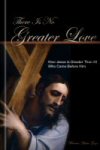
Scripture illustrates the greatness of Jesus—his love, his wisdom, and his dignity. In There Is No Greater Love: How Jesus Is Greater Than All Who Came before Him, Warren A. Gage surveys Scripture, examining New Testament authors’ understanding of the greatness of Jesus. Key in this examination is the use of typology—a method of biblical interpretation where an Old Testament type prefigures and finds its ultimate fulfillment in a New Testament antitype. Jesus made statements comparing himself to the temple, Solomon, and Jonah; and the authors of the New Testament used comparisons to illustrate Jesus’ unique excellence. There Is No Greater Love is an accessible study of these comparisons and what they reveal about Jesus’ greatness. Filled with rich descriptions and references to Scripture, this work is perfect for personal and group study.
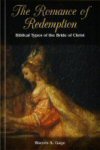
Warren A. Gage’s The Romance of Redemption operates on the theory that if the prophets, priests, and kings of the Old Testament are types of Christ, then their brides are types of Christ’s bride—the church.
The book tells the story of 16 brides in the Bible. Four brides discovered at a well in a far off country. Four royal brides, whose stories anticipate the destiny of the bride of Christ. Four brides marred by whoredom, and four brides notable for their purity. And finally, in the epilogue, Mary Magdalene, and the profound story of her redemption.
As Gage weaves together these bridal stories, he shows their unifying thread to be a demonstration of some aspect of the gospel, and displays how their differences highlight the vast expanse of redemption through Jesus Christ.
Warren A. Gage is the president of the Alexandrian Forum, a ministry dedicated to bringing in-depth biblical and classical education back to our churches and communities. Warren holds a ThM from Dallas Theological Seminary, a JD from Southern Methodist University, and a MA and PhD from the University of Dallas. Prior to his work for the Alexandrian Forum, he served as a professor of Old Testament and classical studies at Knox Theological Seminary. He is known for his advocacy of biblical typology and a literary approach to biblical exposition which demonstrates that all of Scripture points toward Christ.
Reviews
6 ratings
Rick Standefer
2/1/2025

David Achorn
5/26/2023

Josh Watford
10/7/2021
Howard Burgoyne
11/30/2019
I first read Gage’s “the Gospel of Genesis” in the early 1980’s and found it to be eye opening in providing an integrative and cross narrative approach to Scripture. Since then I’ve gobbled up every subsequent volume of material that Dr. Gage has published. I have a BA from Bryan College (Greek and History) and an M. Div. from GCTS. I’ve been studying since then for over 30 years.
Nathaniel & Kelsey Stamper
1/28/2015
Lee Ann Mancini
7/14/2014
The material Dr. Warren Gage has authored is outstanding! 1. Rich in typology, connecting the OT to the NT. 2. A complete understanding of the bridegroom, Christ and His bride, the Church. 3. The third-day resurrection as seen in the OT affording me a larger comprehension of how the lives and stories of in the OT truly point to the life and resurrection of Christ! And so much more! I have a BA from Regent University, a MA from Knox Theological Seminary and MACS from Trinity Theological Seminary. I have read a vast amount of material, in addition to my formal education, and I have to say this material is a necessity for anyone's library that is a serious student of the Word of God.